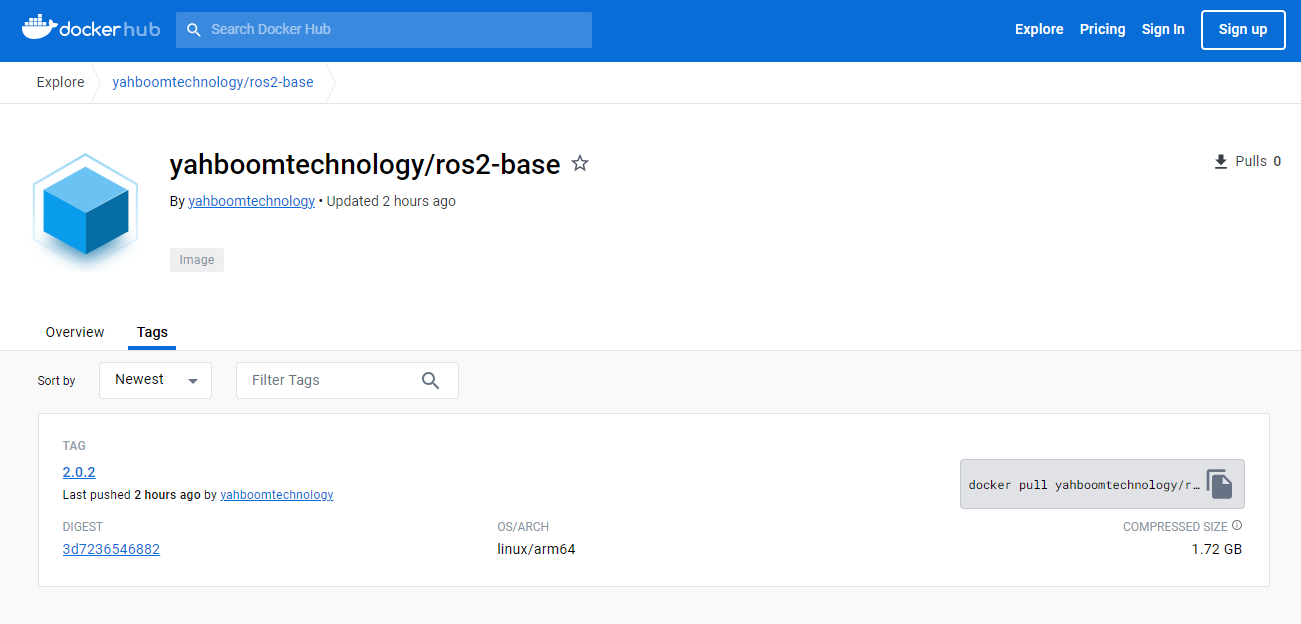6.Update docker images
6.Update docker images6.1、Method 1 (Rewrite the factory image of the motherboard)6.2、Method 2 (Download the latest docker image from docker hub)6.3、Method 3 (Update docker image via tar pack)
Currently, ROS2's courses are all placed in docker containers, and you can experience learning to use containerized development methods.
Before updating the docker image, please check the version number of your image, and then check whether your image is the latest image according to the following methods
xxxxxxxxxxdocker images
In the future, new functional modules will continue to be added to docker, and these new functional modules will be put into the new docker image, and users need to experience these new functions, and there are three ways to update the docker image:
6.1、Method 1 (Rewrite the factory image of the motherboard)
When the new docker image is updated, the image with the host will be published, and the new docker image has been downloaded from the host machine. You can brush image directly to your board. If you feel trouble, you can use the following two ways.
6.2、Method 2 (Download the latest docker image from docker hub)
When a new docker image is updated, users can manually update the image without brushing the machine
docker hub website address:
https://hub.docker.com/r/yahboomtechnology/ros2-base/tags

Use commands on the host:
xdocker pull [the latest image version number]example:docker pull yahboomtechnology/ros2-base:2.0.2# The latest image version number here is modified according to the actual view
For the latest docker image version number, see the file of this tutorial [Latest Docker image version number.txt]
After the pull execution is complete, you can view the downloaded image
xxxxxxxxxxdocker images
6.3、Method 3 (Update docker image via tar pack)
When a new docker image is updated, users can manually update the image without brushing the machine:
The new docker image will provide a [xxx.tar] file, which will store the new docker image. see the file of this tutorial [Latest Docker image version number.txt], If the version number of the file is higher than that of the current host, it indicates that there is an update and the image can be updated. Download the file to the host machine.

The tar file here is updated in real time, and may be older than 2.0.2 when you see it, depending on the actual version.
Use the command in the directory where the [xxx.tar] file of the host is located:
xxxxxxxxxxdocker load -i xxx.tar
After the docker load execution is complete, you can view the downloaded image
docker images